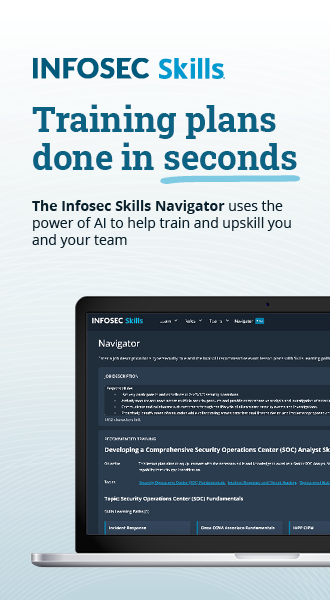What does a system administrator do and how to become one?
A system administrator (SA) plays a crucial role in modern organizations and is responsible for keeping computer and information technology (IT) systems up and running smoothly. Not only are they critical roles for seamless day-to-day operations, but they are also valuable when implementing new innovations and moving the organization forward.

System administrator working in a data center. System administrators specialize in cloud systems, databases, security systems and more.
Definition of a system administrator
A system administrator is a skilled IT employee responsible for the upkeep, configuration and operation of all critical infrastructure, including hardware, software and operating systems. Most likely, you need some formal education, whether that’s a certification or a four-year college degree. System Administrators can move forward in their careers by taking on a more specialized administration role, such as a cloud administrator or a cyber security analyst. With additional experience or certifications, they can migrate their skills into other IT fields.
Like most IT roles, the system admin role has evolved. What began as a basic function of IT is now a more complex role responsible for cloud migrations and implementing new, innovative technology. System administrators have also become more specialized, with different roles niching down into cloud systems, databases, security systems and more.
FREE role-guided training plans

Key responsibilities of a system administrator
Mainly responsible for the entire lifecycle of hardware and software assets, system admins are responsible for managing, troubleshooting, licensing and updating. This proactive role mitigates problems before they happen and works to avoid business downtime. While your job description might vary, key responsibilities are below:
-
Installing, configuring and maintaining software and hardware.
-
Monitoring system performance and troubleshooting issues.
-
Ensuring security and efficiency of IT infrastructure.
-
User account management and data backup.
-
System performance tuning and network infrastructure maintenance.
Types of system administrators
Depending on your interests, specialized skills, education and even certifications, different types of system admins might be more attractive. For example, a system administrator vs cloud administrator would allow you to specialize in cloud-based networks with an extensive understanding of migration techniques, maintenance strategies and more.
Network administrators
Mainly responsible for managing network infrastructure, network administrators manage an organization's entire network from installation to monitoring and troubleshooting. They also need extensive computer hardware knowledge as well as strong problem-solving and communication skills. For example, a system administrator vs a network administrator both maintain critical infrastructure, but a system admin focuses on operating systems, software platforms and servers.
Database administrators (DBA)
DBAs maintain databases by creating and organizing systems to secure a variety of data. Their skills include using specialized software for capacity, planning, database, design, performance monitoring and Moore. They also need extensive knowledge of cloud-based servers, hybrid environments and on-premises data centers.
Server and web administrators
These specialized IT roles oversee servers and web services by ensuring smooth functioning. They might perform tasks like creating new user accounts or implementing network maintenance standard operating procedures.
Security systems administrators
With a focus on cyber security, security systems administrators are responsible for monitoring and maintaining security systems. They focus on planning and implementing security measures that protect data and infrastructure from unauthorized access.
Skills required for a system administrator
Like many IT roles, system administrators require a unique blend of technical skills and soft skills.
Technical skills
For technical skills, system administrators need to be experts in cloud computing, SQL, scripting and coding. They also need extensive hardware and troubleshooting skills. Technical skills are built with real-life, on-the-job applications or through extensive boot camp training.
Soft skills
System administrators might work closely with many different departments or even lead a small team themselves. Soft skills like communication, decision-making, leadership and attention to detail are extremely important in building an effective work environment. System administrators also need strong problem-solving and critical thinking skills along with the ability to work under pressure like a system outage or cyberattack.
The relationship between system administration and cybersecurity
System administrators are needed to set up and maintain strong cybersecurity protocols. With strong cyber security skills, systems administrators can proactively improve defenses, patch vulnerabilities and follow best practices regarding network infrastructure. With strong cyber security skills, systems administrators can proactively improve defenses, patch vulnerabilities and follow best practices when it comes to network infrastructure. This ensures systems function at the highest and safest level. In the case of a cyberattack, operations can resume much faster with minimal downtime when system administrators have security skills.
System administrators are responsible for identifying and mitigating cybersecurity threats proactively by ensuring software updates happen on time, patch schedules are followed, database recovery best practices are implemented and vulnerabilities are kept at bay. There is significant overlap between system administrators and security administrators, as even the best system administrator could not ignore cybersecurity functions. While they’re not security experts and well-versed as trained security analysts, they understand and implement basic best practices.
Certifications and training
It’s not a one-size-fits-all education path to becoming a system administrator. Overall, you need technical expertise and some sort of education, whether that’s a certification, boot camp or technical degree.
What is often more important for system administrators is continuous learning and upscaling. The modern IT environment is rapidly changing with the emergence of cloud environments, artificial intelligence, machine learning and more. Certifications are an excellent way to maintain and improve skills. Popular certifications include Microsoft Certifications, Red Hat Certified Engineer (RHCSA certification), CompTIA Server+, CompTIA Linux+ and Cisco Certified Network Associate.
Certifications can positively impact career advancement, especially if you choose to dive deep into a specific area of knowledge. Certifications can make you stand out for competitive roles and show your commitment to continuous improvement. Also, certifications in emerging technologies like natural language processing or machine learning can put you ahead of other candidates. Certifications can also lead to pay increases; for example, the average RHCSA salary is $95,000, one of the highest-paid certifications.
System administrator in the context of jobs and careers
Systems administrator jobs are only getting more critical to the optimal functioning of modern, advanced enterprise organization systems. Network and computer system administrators are expected to see 3.2% job growth from 2022 to 2032, and most likely its responsibilities will continue to evolve with emerging technologies. Unemployment rates remain extremely low at 1.5% as these are critical positions to maintaining an organization's operations.
The median salary is $80,600, but this varies widely across seniority, location, specific title and more. The top 75% of systems administrators make an average of $102,720.
When it comes to career growth and advancement trends, many systems administrators are choosing to specialize in specific areas. Whether that’s cyber security, cloud, environments or databases the opportunity for higher pay with specialization is great. Overall, systems administrators are ranked in the top ten of best technology jobs.
FREE role-guided training plans

Is the system administrator career right for you?
An indispensable role that will only get more valuable as IT operations become more convoluted and complex, system administrators should embrace continuous learning to stay on top of emerging technologies, trends and new cybersecurity practices. Explore new certifications and boot camps to take your skills and training to the next level.







